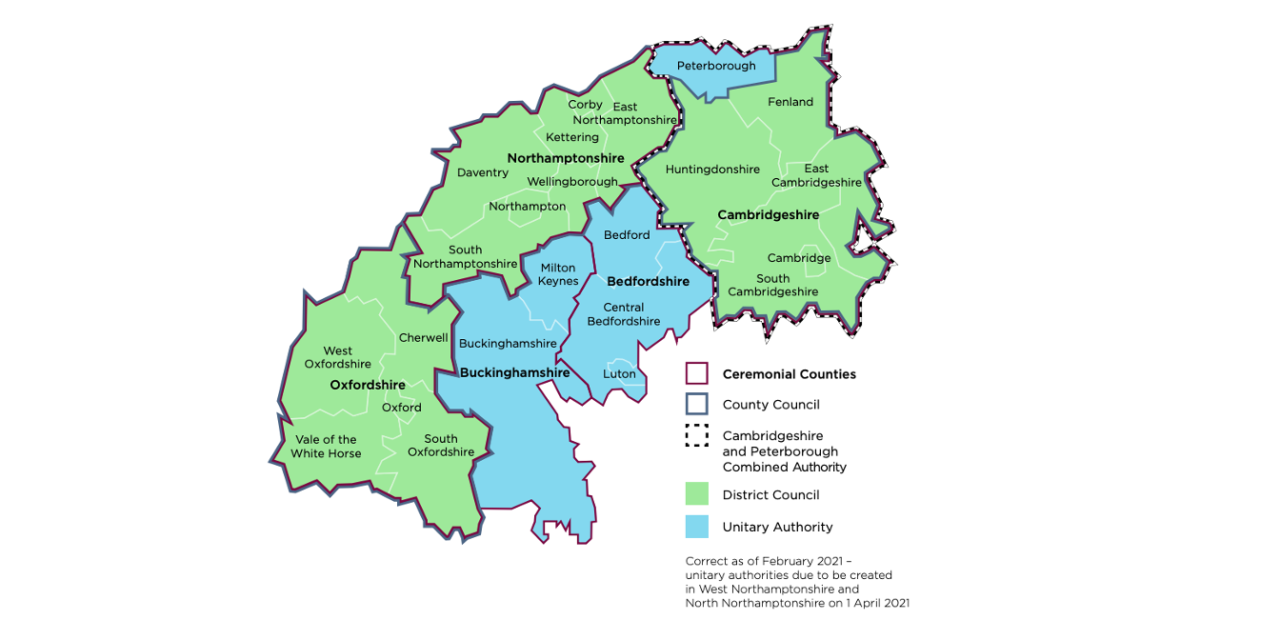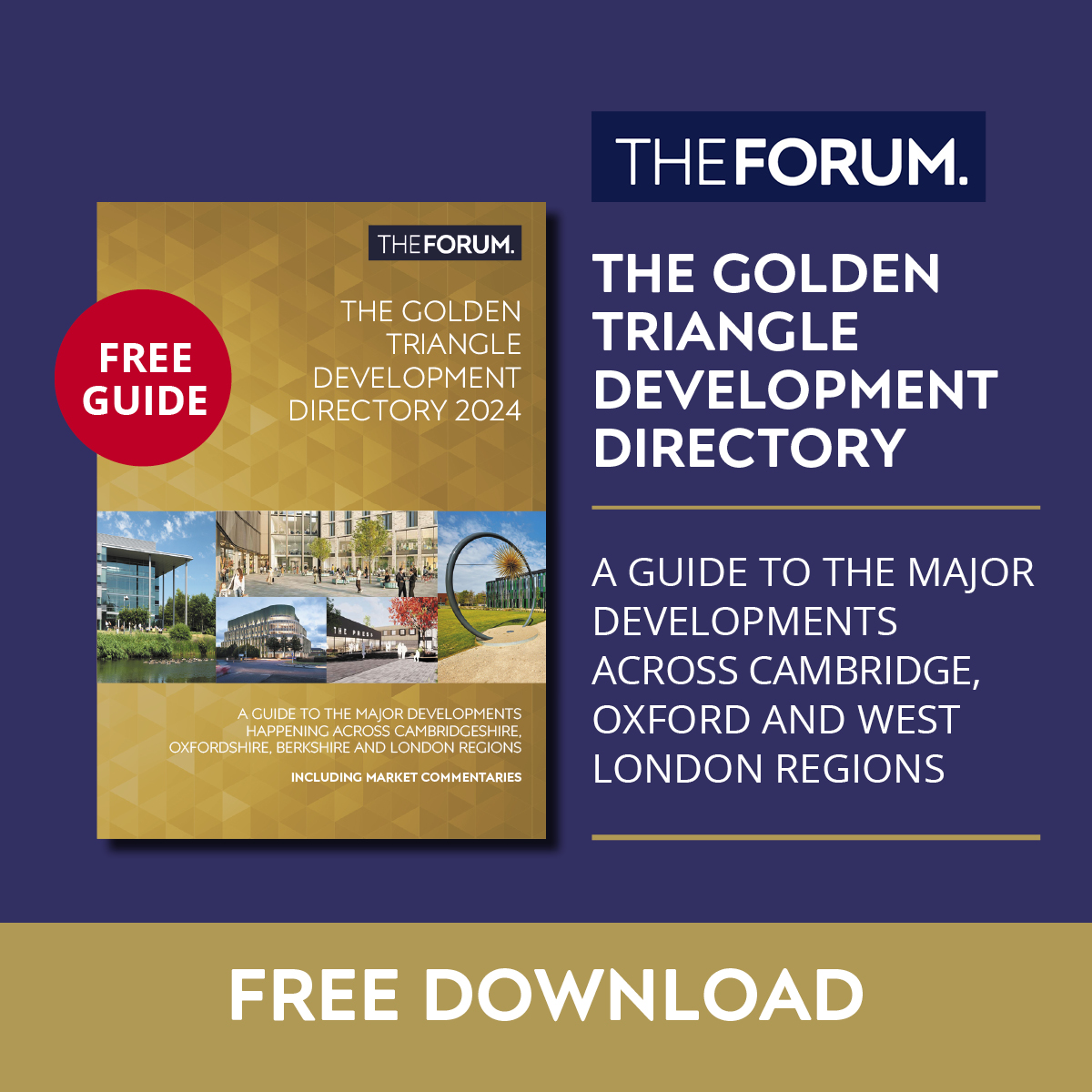UK Property Forums consultant Hugh Blaza attended Westminster Social Policy Forum’s seminar on the future of the Oxford – Cambridge Arc and sees a future for it – even without Government help.
I’ve been picking the bones from out of my notes of Westminster Social Policy Forum’s (WSPF) recent, comprehensive seminar on the future of the Oxford – Cambridge Arc.
With an impressive array of speakers, the event succeeded in:
- Explaining what the Arc is (frequently and, one suspects, at times deliberately misunderstood);
- Describing the depth and breadth of what goes on across its sweep and how beneficial it already is (let alone might be); and
- Setting out the stall for the ways in which the Arc can be helped to achieve its full potential.
The story so far…
As 2021 drew to a close, we were all under the impression that central Government would be putting its financial and organisational shoulder to the wheel to support the Arc following the initial spatial strategy consultation.
But Michael ‘Medici’* Gove has spiked that cannon, it seems, by omitting any specific reference to it in his levelling up proposals.
So whither (or should that be ‘wither’) the Arc now? The speakers at the WSPF event appeared to think that news of its death was, to coin a phrase, premature…
The key takeaways:
- The concept of the Arc as it was originally christened was doomed from the outset by the public’s negative perception that it was a trojan horse for a million new homes and a new motorway.
- The mere geographical description fails to reflect the innovative activities for which the region should be known. Far better to describe it as the ‘England Incubator’.
- A regional spatial framework must be developed to promote the care, collaboration and compassion which are the key to the Arc’s success.
- The activities in the Arc will not only benefit mankind, as they continue to address the existential crises which confront us, but also benefit the wider UK economy through collaborations up and down the land. Not to mention overseas, where the region’s activities have the potential to compete with those in MIT and Silicon Valley.
- Local leaders must come together to agree ways of explaining to their constituents the positive aspects of what is happening in the region.
- The political pressures on the Conservative Government to demonstrate support for the ‘red wall’ parts of the country mustn’t eclipse the need for its support for the Arc, particularly as it also contains areas of deprivation.
- If it can’t, or won’t, find the money to invest in the Arc, the Government should offer its resources to encourage private investment in the initiatives which the universities are pump-priming.
- Collaboration must be encouraged so that the environmentally sustainable and beneficial ways of delivering growth which have been identified can be achieved.
- Central Government remains responsible for national infrastructure reform. National policy statements must be encouraged in support of essential new transport and digital communications links which will encourage people to decide with confidence that they can live and work happily and sustainably in the region.
- East – West Rail must not be put at risk as it is the key to access and mobility across the region. It takes on average 51 minutes to drive the eight miles from Cambourne to Cambridge. It would take 15 minutes by train.
- Splitting the Arc into three ‘bite-size’ chunks (east, central and west) could be the key to the practicalities of delivery.
Unanimous support was expressed for the continuation of the work of the Local Enterprise Partnerships and the Arc Leadership and Universities Groups; they have already done so much to co-ordinate the opportunities.
So, even though dividing up the region may make the project more manageable, it is crucial that a compelling pan-regional case for support from central Government is made. Then, despite there being no actual mention in the levelling up White Paper, there is every prospect that support will be provided.
All the speakers delivered powerful, if not passionate, messages in support of the region. But possibly the most compelling metaphor was that of Andy Neely, pro vice-chancellor enterprise and business relations at the University of Cambridge: the region is abundant and fertile. It will continue to grow despite a laissez-faire approach, but just imagine the possibilities if it is cultivated, like a garden…
* The Government’s levelling up White Paper likens the initiative to the Italian Renaissance.
© Thames Tap (powered by ukpropertyforums.com).
Sign up to receive your free weekly Thames Tap journal here.















